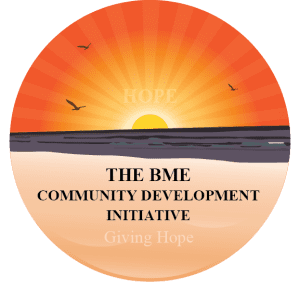Gratitude: Learning to Count Your Blessings Before It Is Too Late

The Fall of “Having it All”
Craig Stanland had what many young people dream of: a high-paying tech job, luxury cars, fine dinners, and a beautiful home. On the surface, he had it all. But Craig never felt it was enough. Each success only fuelled a hunger for the next high, the next purchase he was chasing self-worth in status symbols.
He never paused to feel grateful for his supportive wife or stable life; instead, he felt “unworthy” of it and obsessed over what he did not have. This mindset led him down a dark path: to maintain his lifestyle when his legitimate income waned, Craig turned to fraud.
Eventually, the FBI caught him. In an instant, he lost everything wealth, reputation, even his marriage. Imprisoned and at rock bottom, Craig was consumed by shame and regret, even considering suicide.
How could someone so fortunate fall so far? In Craig’s own reflections, it is clear that ingratitude was a root cause. He admits he “never stopped to look at all I had an amazing wife, family, and friends who love and support me”.
He lived in “a state of inner poverty” despite material abundance, always focused on what was missing. This void a failure to appreciate drove him to reckless greed. Only after losing his freedom did he grasp the value of what he had.
Gratitude Behind Bars
Craig’s turnaround began in the bleak setting of a federal prison library. One morning, seeing the sunrise through the barred window, he felt something unexpected: gratitude for that small beauty and for being alive to witness it.
He borrowed a pen and scribbled a simple sentence in a notebook: “I am grateful for this morning’s sunrise and that I was able to experience it.” That was it. Just one genuine expression of thanks, born from the heart. But it “flipped a switch” in Craig’s perspective. Despite having “less than I have ever had” materially, he felt a surge of empowerment from this new outlook.
Each day, he challenged himself to find something anything to be grateful for: a decent meal, a kind word from a fellow inmate, a memory of a happy moment. It was not always easy. Some days he struggled to think of something, but he forced himself to, and he “always found something”.
Over time, these small acts of gratitude had a profound cumulative effect. They were, in his words, “like a new way of thinking” that caught him off guard. The man who once fixated on scarcity started to see abundance in small mercies. Gratitude became his lifeline a source of strength and sanity in an otherwise dark time.
Psychologically, what Craig experienced aligns with research: gratitude can dramatically improve well-being, even in dire circumstances. By focusing on what is good, however little it may seem, one can shift from despair to hope.
Craig found that as he practiced gratitude, his hatred for himself diminished and his motivation to rebuild grew. He began writing letters of amends, dreaming of how he might make his second chance count. “I started thanking God for a second chance,” he said later, “and I promised I would not waste it.”
In prison, he took advantage of classes and counselling. When he was released, Craig kept up his gratitude journaling habit. Every morning, he wrote down three things he was grateful for no repeats allowed which forced him to keep noticing new positives. That practice kept him grounded and focused.
Instead of resenting starting from scratch a low-paid job, a tiny apartment, he felt grateful to have a job and a roof at all, grateful for his sobriety, grateful for supportive friends. That mindset fuelled his discipline to work hard, avoid old temptations, and gradually advance.
Today, Craig is a free man, a writer, and a speaker who shares his story to caution others about greed and to extol the power of gratitude as a life-saver. He often tells audiences, “I was filling a broken glass. Gratitude taught me I had enough. More than enough.”
The Entitlement Trap vs. The Gratitude Attitude
Craig’s tale is an extreme case of entitlement leading to downfall and gratitude leading to redemption. But many of us live some version of that dynamic on a smaller scale. Modern culture, especially for youth, can foster a sense of entitlement.
The idea that we are owed certain luxuries or success, and if we don’t have them, someone is to blame. Social media feeds this by showing highlight reels of others’ lives, making young people feel they are missing out or that what they have is not good enough.
It is easy for a teenager today to slip into ingratitude, focusing on the latest gadget they did not get, the exotic holiday they cannot afford, the talents or looks they wish they had, rather than being thankful for what is in their life health, education, loyal friends, etc..
This mentality is not just unappealing. It is dangerous. It breeds chronic dissatisfaction, anxiety, even anger. Entitled teens might disrespect teachers “Why should I do boring homework? I deserve fun” or strain family relationships “You have to buy me the newest phone!”.
Some, like Craig, might cut corners ethically to get what they feel owed cheating on exams or shoplifting for the thrill of possessing things without earning them. In extreme cases, feelings of ingratitude and emptiness can escalate to destructive behaviour, as we saw with those who turned to violence or extremism from lack of appreciation for their communities. The entitlement trap is essentially a never-ending race on a hamster wheel no matter what one gets, the void remains because one’s attention is always on the next thing or what others have.
Enter the gratitude attitude as the escape hatch from that trap. Adopting gratitude shifts the focus from what’s missing to what’s present. It does not mean one stops striving or has no ambition. It means one’s drive comes from a place of appreciating opportunities, not from an insecure need to fill an emotional hole.
A student grateful for their education will work hard out of respect and hope, not just fear of failure. An athlete grateful for the chance to play will handle losses better and avoid burnout by cherishing the process, not just the trophies. In families, when teens practice gratitude like actually thanking parents for dinner or acknowledging sacrifices made for them, it strengthens bonds and mutual respect. Parents, in turn, feel appreciated and are likely to respond with more trust and freedom for the teen a virtuous cycle.
There is an illuminating statistic from a survey of British teens. Those who regularly engaged in a gratitude practice like journaling or prayer reported higher life satisfaction and lower depression rates than peers who did not. It’s not magic; it is mindset.
Gratitude does not solve every problem, but it creates a mental buffer that makes problems feel surmountable. It is hard to feel wholly defeated when you can still say, “This is tough, but I am thankful for X which helps me through.” Take the pandemic lockdowns many young people suffered isolation and disruption.
Some coped by focusing on gratitude: more time with family, the blessing of technology to stay in touch, newfound hobbies. Others fell into despair focusing on what they lost. Often, the ones who coped better were those who perhaps guided by parents or mentors leaned into gratitude. It gave them perspective “Yes, this is awful, but I still have XYZ, whereas others have it worse” and even a sense of agency “I’m grateful to the NHS workers. I will show it by volunteering or simply following guidelines diligently”.
Teaching Gratitude: It Is Never Too Late Or Early
How do we nurture this gratitude attitude in a generation characterised unfairly at times as self-centred or unappreciative? First, we bust the myth that gratitude is something you either have or don’t. It is a skill, a habit that can be learned and strengthened at any age.
Schools can incorporate moments of gratitude into the day. Something as simple as starting class with each student naming one thing they are thankful for can set a positive tone and gradually normalize gratitude.
Some UK schools have done “Gratitude Trees” where students write notes of thanks to people, to aspects of life on paper leaves and hang them on a tree display. It might feel forced at first, but over time students begin to enjoy reflecting on positives. These activities are not just fluff. They are training young minds to pause and acknowledge good things, which in turn encourages optimism and resilience.
Families can do this too. Maybe it is a tradition at Sunday dinner or before bed: everyone shares one piece of gratitude. Such rituals stick. One 19-year-old said that as a moody teen he used to roll his eyes at his mum’s insistence they say what they are grateful for each week, but now at university he continues the practice privately because “it shifts my mood when I am stressed.”
His mum sowed seeds that blossomed later. Parents can also model gratitude by not constantly complaining in front of kids. That does not mean hiding every frustration, but balancing it: “Work was hard today, but I am grateful I have a job to support us.”
Kids who hear this perspective learn to emulate it. Conversely, if they only hear parents gripe “Ugh, the car is acting up, everything sucks, we never catch a break”, they absorb that negativity lens. Words matter. Gratitude in words encourages gratitude in outlook.
Mentors and youth workers can leverage gratitude as an intervention tool. For a teen recovering from, say, gang involvement, part of reintegration could involve volunteering, which sparks gratitude by exposure to others’ hardships and guided reflection on positive relationships and opportunities they still have.
Even simple questions “Who has helped you that you are thankful for?” can redirect a youth’s narrative from “I’m doomed” to “I have allies and a second chance.” Rehabilitation programs in prisons have started using “gratitude letters,” where offenders write to someone who impacted them positively. This not only increases empathy but decreases hostility. It is hard to remain angry at the world when you are actively appreciating a kindness given to you.
And as Craig’s story revealed, even in adulthood, it is not too late to learn gratitude. His life literally bifurcated into “before gratitude” and “after gratitude.” Perhaps if someone had taught him those lessons earlier, his fall could have been avoided.
He had to teach himself in a prison library, but many others could benefit from hearing his tale and taking it to heart without having to learn the hard way. Indeed, Craig now runs workshops, sometimes speaking to students, urging them: “Don’t wait to lose everything to be grateful for what you have.” He challenges young people to try a 30-day gratitude journal challenge, citing how it rewired his brain and can bolster theirs.
Gratitude Lights the Way Forward
Gratitude, ultimately, is forward-looking. It is not just dwelling on past or present blessings, but also recognising the potential for future ones. It instils hope.
A grateful person tends to expect good or at least, seeks to create good, which becomes a self-fulfilling prophecy over time. This ties into discipline and responsibility: grateful youth are more likely to make positive choices, because they see what they could lose or value what they could gain.
A student grateful for a college opportunity is less likely to squander it partying excessively, for example. A citizen grateful to live in a free society might take the responsibility of voting seriously and work to improve their community, rather than disengaging or, worse, turning to radical destruction out of cynicism.
We saw that dynamic with Salman Abedi the Manchester bomber. Commentators noted he lacked any apparent gratitude for the country that saved his family, and that absence of thankfulness to his community correlated with his willingness to attack it. Conversely, countless stories of refugees or immigrants who succeed and give back attribute it to gratitude. They are thankful for their new start and determined to contribute.
In our own small lives, gratitude paves the way for generosity. When you feel rich in spirit, you want to share. A teenager who feels thankful for a skill, say, being good at maths might tutor a struggling classmate out of that sense of abundance.
A family that is grateful for their stable home might volunteer to help homeless families. This is how gratitude multiplies goodness. It not only makes the grateful person happier but radiates outward in acts of kindness or philanthropy. And thus, it circles back, as those helped feel grateful to someone, perhaps paying it forward, and on it goes. It is the opposite of a vicious cycle, it is a virtuous cycle.
Learning to “count your blessings” is far more than a quaint saying. It can avert personal disaster, as with Craig. It can steer youth away from toxic choices, as in many cautionary tales where gratitude was missing. It can heal emotional wounds by reminding one that not all is dark. It can tighten bonds and build bridges in society. And on a fundamental level, it just makes life richer.
Whether you keep a journal, say a prayer, or simply take a moment each day to quietly acknowledge what is going right, the practice of gratitude is like training a muscle over time, the gratitude muscle grows and can lift heavier loads of stress, of hardship without breaking. Gratitude does not remove challenges, but it fortifies you to meet them with grace.
Craig Stanland once wrote in his journal, during his darkest days, “In a world of perceived abundance, I was living in a state of inner poverty.” Gratitude turned that around. He found inner abundance even in literal poverty. If he can do it in a cell, we can encourage our youth and ourselves to do it in daily life.
The benefits await all we have to do is start saying “thank you,” and meaning it, regularly. Gratitude is free, but it is the best investment we can make in our well-being and in the character of the next generation. Let’s ensure they don’t have to learn the hard way what they should have cherished all along. Count your blessings, and they will surely count for you.



